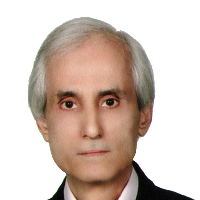Listening Skills of non- Iranian Persian Language Learners: Comparing Virtual and Normal Classess
Author(s):
Article Type:
Research/Original Article (دارای رتبه معتبر)
Abstract:
The present research investigated the acquisition of listening skill through virtual and normal classes at Al-mustafa Open University and Almahdi School respectively, both affiliated to Al-mustafa International University. As a descriptive-analytical research, the study aimed at assessing the validity of virtual instruction at this international university. Since the same curriculum is used in virtual classes of Al-mustafa Open University and normal classes of Almahdi School, a piloting was initially performed with ten students of virtual classes. Then, 42 3rd semester Arab students were randomly selected from the above institutions. Following Browns (2004) guidelines, their general listening skills were assessed through a test. The data of heterogeneous learners were removed. The means of virtual class and normal class learners on listening test were 12.96 and 13.86 respectively. That is, normal class students on average scored 0.9 higher than virtual class students. However, independent samples t-test revealed that the mean difference was not statistically significant. Thus, it was concluded that virtual instruction should be promoted in the educational policy of Al-mustafa International University. When applicants cannot attend normal classes in Iran, virtual instruction could replace normal class instruction.
Keywords:
Language:
Persian
Published:
Journal of Teaching Persian to Speakers of Other Languages, Volume:4 Issue: 10, 2016
Pages:
119 to 138
https://www.magiran.com/p1814280
سامانه نویسندگان
مقالات دیگری از این نویسنده (گان)
-
Analyzing the rhetorical techniques of Persian literature from the perspective of teaching non-Persian speakers
Farnaz Fotoohi *, Ahmad Khatami, Mahinnaz Mirdehghan, Ahmad Saffarmoqaddam
Journal of Persian Language International Teaching Studies, -
Teaching Persian Verbal Networks to Non- Iranian Learners: A Comparison of their Performance in Answering to the Alternative and Inclusive Questions
Amir Reza Vakilifard *, Roya Jediri Jamshidi, Aahmad Safar Moghadam
Language research,



